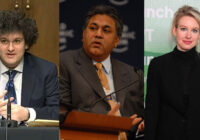Do not judge me by my success, judge me by how many times I fell down and got back up again.
What do Oprah Winfrey, Barack Obama, Shah Rukh Khan and Howard Schultz have in common? They are all masters of their craft and have redefined success in business, politics and entertainment. Equally significantly, these visionaries all weathered adversity during their formative years.
Multiple studies of leadership, success and excellence from various academic fields suggest that overcoming adversity builds a capacity for resilience and growth. In The Wall Street Journal, clinical psychologist Meg Jay points to a study of 400 successful leaders in which 75% suffered extreme adversity as children. Angela Duckworth, a US neuroscientist, in her book Grit, states how childhood adversity can create determination and adaptability, for later success in life.
Some authors indicate adversity leads to developing toughness and determination, while others point to the importance of suffering for developing empathy and compassion. The best interpretations recognize that successful leaders learn to blend multiple skills stemming from adversity: Resilience and determination mixed with empathy and understanding others.
Successful examples
Oprah Winfrey’s early life unfolded in the 1960s, a tumultuous period marked by pervasive racism and discrimination against African-Americans in the US. Her journey was fraught with challenges, including systemic racism, abject poverty, sexual abuse, harassment by family members and the lasting scars of trauma. She endured years of pain and grappling with substance abuse before ultimately rising to make an indelible impact on the world through her acting talent and savvy as a businesswoman who built an entertainment empire.
In a candid interview, Winfrey revealed that the trials of her youth played a pivotal role in shaping her self-belief and instilled the unwavering confidence that empowered her to realize her most ambitious dream of becoming one of the wealthiest and most influential people today.
Barack Obama, whose father left when he was two years old, was raised by a single mother juggling two jobs while also homeschooling him. Though he had to navigate manhood alone, his life’s trajectory took him toward undeniable success. From living in Hawaii to moving to the southside of Chicago, Obama eventually studied at Columbia University and Harvard Law School. He became the first African-American president of the United States, serving from 2009 to 2017.
In his memoirs, Obama wrote, “Someone once said that every man is trying to live up to his father’s expectations or make up for his father’s mistakes … I suppose that may explain my particular malady.”
Indian actor Shah Rukh Khan has unparalleled stardom in the entertainment world that transcends borders. His journey to stardom, however, is marked with significant personal challenges. Khan’s father, Taj Mohammed Khan, passed away from cancer when the actor was 15 years old. During that time, Khan’s family couldn’t afford treatments, leading him to state, “I’ll never know whether he died because we didn’t have the money or he died because he had to.”
The troubles didn’t end there. In 2021, he faced a different kind of hardship when his son was arrested in a high-profile drug case in Mumbai, subjecting his family to immense pain and public scrutiny. After the acquittal of his son, Khan delivered two of the highest-grossing films in Bollywood history in 2023, Pathaan and Jawan. Jawan specifically addressed social issues, highlighting the unjust persecution of innocent people in India, and became a massive success, grossing over $200 million at the box office. Now, Khan is the beloved “King Khan” in the film industry.
Howard Schultz, the former chief executive officer (CEO) of Starbucks Corporation, endured a rough childhood that tested him and his family and also built resilience that contributed to his later success. In childhood, Schultz’s father sustained an injury on the job, leading the family to lose their sole source of income. Without an income, the family went without food, health insurance and other basic necessities. His father added physical abuse to the mix, leaving all of the children emotionally scarred. But Schultz turned hardship into determination and resilience. He worked throughout high school and his years at Northern Michigan University to become the first person in his family to graduate college. He went on to build Starbucks into a global coffee empire and is currently a philanthropist, dedicated to supporting veterans and other causes.
In a world filled with injustice and oppression, it is vital to understand the possible deeper meaning behind pains and trials. Although tragedy does not automatically build resilience and endurance, it can paralyze or fuel us for endless growth, as it did for Winfrey, Khan, Schultz and Obama, among many others.
Ultimately, the challenges forged their will to succeed and tackle obstacles in their paths. Challenges helped them to understand, empathize and learn from others. Rather than fill a void, leaders search for something to strive for, build, achieve and dream. With goals, leaders can redeem themselves and make sense of their lives. That perseverance, in combination with resilience and empathy, builds successful leaders who thrive while bringing others along in their triumph.
[KeAmber Council edited this piece.]
The views expressed in this article are the author’s own and do not necessarily reflect Fair Observer’s editorial policy.
Listen to this Podcast :
Support Fair Observer
We rely on your support for our independence, diversity and quality.
For more than 10 years, Fair Observer has been free, fair and independent. No billionaire owns us, no advertisers control us. We are a reader-supported nonprofit. Unlike many other publications, we keep our content free for readers regardless of where they live or whether they can afford to pay. We have no paywalls and no ads.
In the post-truth era of fake news, echo chambers and filter bubbles, we publish a plurality of perspectives from around the world. Anyone can publish with us, but everyone goes through a rigorous editorial process. So, you get fact-checked, well-reasoned content instead of noise.
We publish 2,500+ voices from 90+ countries. We also conduct education and training programs
on subjects ranging from digital media and journalism to writing and critical thinking. This
doesn’t come cheap. Servers, editors, trainers and web developers cost
money.
Please consider supporting us on a regular basis as a recurring donor or a
sustaining member.
Will you support FO’s journalism?
We rely on your support for our independence, diversity and quality.






Comment